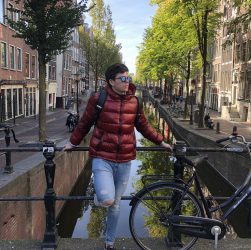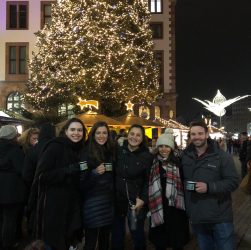Pre-departure: The first 6 months of your exchange year goes by way faster than one thinks. This is, however, a …


Pre-departure: The first 6 months of your exchange year goes by way faster than one thinks. This is, however, a …

Before you take off on your flight to the land of bicycles and stroop waffles, there are a few preliminary …

Nächster halt: My exchange trip was exciting, scary, extremely fun and sometimes lonely, all mixed together in an unforgettable whirlwind …